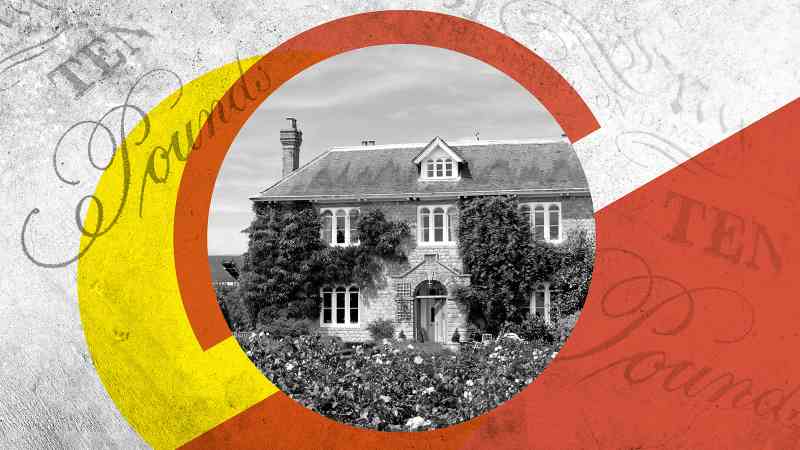Should capital gains tax be raised to 40 per cent?
As the government prepares to raise taxes in the budget next month the spotlight is falling on capital gains tax (CGT), which applies to gains made from the sale of assets such as property or shares and is charged at a maximum rate of 20 per cent for shares and 28 per cent for property. We ask two experts if the rates should increase
Sarah Coles from the wealth manager Hargreaves LansdownFor a government that needs to raise money, a wealth tax such as CGT might seem like an easy answer. But when you factor in investor behaviour, even from the government’s perspective, it’s hard to argue for massive hikes in the CGT rate. It could end up meaning that less tax is collected and that, in the process, investors fail to invest in British businesses.

CGT is complicated because the rate you pay depends on your income tax level, and whether or not your gains are made from a property (that is not your main home). The rate is 18 per cent on gains made from property if you are a basic rate payer and 24 per cent if you pay a higher rate of income tax. Gains made from other assets like shares are at 10 per cent and 20 per cent respectively.
CGT is levied on investment gains from land and property, but these assets are very different from investment in shares in growing businesses, so it’s worth considering CGT on stocks and shares as a separate issue.
Change isn’t out of the question. CGT has varied significantly over the decades. The government moved from a tax that was aligned with income tax rates — but benefited from serious taper relief — to multiple rates with a slashed allowance and no taper relief. It could be changed again.
However, if the rates were equalised with income tax, it would mean doubling the rate for basic-rate taxpayers and higher-rate taxpayers, and increasing the rate 125 per cent for additional-rate taxpayers. Without any other changes to mitigate the increase, this would be an eye-watering squeeze on investors.
It would undoubtedly affect their behaviour. They could rush to sell before the rules change, or hang on to assets until their death — when this particular tax is reset to zero. It means that by increasing CGT, the government might actually raise less tax.
• What is capital gains tax?
It could also put investors off. The UK has an investment problem. People invest far less here than they do elsewhere around the world. The tax system needs to support investors in the UK and jacking up CGT would achieve precisely the opposite.
It also makes long-term investment less rewarding. For investment to meet the needs of investors and the companies they are taking a stake in, they need to be held for the long term. The tax system should be designed to support this but, at the moment, stamp duty, dividend tax and CGT rules fall short on this front.
Tim Stovold from the accountancy firm Moore Kingston SmithWith a £22 billion hole in the Treasury’s coffers and the chancellor raiding the winter fuel allowance, it would be naïve to think that growth alone can plug the gap in public finances. It is a case of choosing the least worst option.
CGT is only paid by relatively few people but, for some assets, creating parity between income tax and CGT is clearly the morally correct decision. Why should windfalls from asset sales be taxed at a lower rate than earned income?

However, if the CGT rate was increased to 40 per cent, reliefs would be needed to account for the effect of inflation on the value of assets and to balance the risks taken by entrepreneurs running their own businesses with some worthwhile reward.
In the past the tax system included indexation relief and, later, taper relief to remove increases in value due to inflation from the CGT charge. This relief had the benefit of a predictable tax rate that tapered from 40 per cent to 24 per cent for most assets. It meant that gains made on assets held for relatively short periods would be taxed in the same way as income, while assets held for longer periods would benefit from lower tax rates.
• How to protect your money before Rachel Reeves’s first budget
Entrepreneurs can benefit from a rate as low as 10 per cent through business asset disposal relief on up to £1 million of gains over their lifetime. If the headline rate is increased to 40 per cent, something a little more generous for entrepreneurs is necessary to ensure that they stay long enough in the UK to give the government a hand with its growth agenda. I’d go back to a £10 million lifetime business asset disposal relief, which was in place until March 2020.
The Office of Tax Simplification’s 2020 report on CGT said that aligning rates with income tax could collect up to £14 billion a year. It also said, however, that the actual amount of tax collected could be much lower as behaviours changed, (for example people may choose not to sell or delay selling assets to avoid CGT) but frankly even a couple of billion pounds would be helpful right now.






